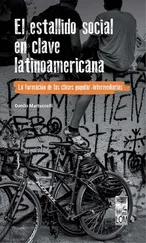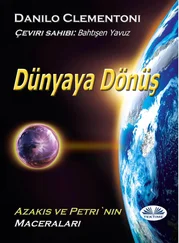Danilo Kiš - Psalm 44
Здесь есть возможность читать онлайн «Danilo Kiš - Psalm 44» весь текст электронной книги совершенно бесплатно (целиком полную версию без сокращений). В некоторых случаях можно слушать аудио, скачать через торрент в формате fb2 и присутствует краткое содержание. Год выпуска: 2012, Издательство: Dalkey Archive Press, Жанр: Современная проза, на английском языке. Описание произведения, (предисловие) а так же отзывы посетителей доступны на портале библиотеки ЛибКат.
- Название:Psalm 44
- Автор:
- Издательство:Dalkey Archive Press
- Жанр:
- Год:2012
- ISBN:нет данных
- Рейтинг книги:4 / 5. Голосов: 1
-
Избранное:Добавить в избранное
- Отзывы:
-
Ваша оценка:
- 80
- 1
- 2
- 3
- 4
- 5
Psalm 44: краткое содержание, описание и аннотация
Предлагаем к чтению аннотацию, описание, краткое содержание или предисловие (зависит от того, что написал сам автор книги «Psalm 44»). Если вы не нашли необходимую информацию о книге — напишите в комментариях, мы постараемся отыскать её.
Psalm 44 — читать онлайн бесплатно полную книгу (весь текст) целиком
Ниже представлен текст книги, разбитый по страницам. Система сохранения места последней прочитанной страницы, позволяет с удобством читать онлайн бесплатно книгу «Psalm 44», без необходимости каждый раз заново искать на чём Вы остановились. Поставьте закладку, и сможете в любой момент перейти на страницу, на которой закончили чтение.
Интервал:
Закладка:
“He’s gotten us out of a lot of tight spots,” Marija said after a brief pause: she said us because that word also means “you,” meaning Žana, because it was clear that the preparations for their escape were in large part Maks’s work; he was there in the background; he pulled unseen strings; he created light and engineered blown circuits. He. Maks. Whom no one saw.
Then she heard Žana’s voice in an echo of a sentence spoken just before:
“Damned clever fellow,” and Marija thought that this was the only way Jakob would ever be able to compliment another man. Not that Žana had any such difficulties. But her “Damned clever fellow” was welcome nonetheless. And Marija imagined telling Žana about what came after, when Dr. Nietzsche finally departed and she said good-bye to Jakob and headed toward the barracks door, at the end of the hallway; and then she thought It would be better if I tried to sleep a bit. I need to be rested. And she pressed the child to her and said in a whisper, without turning her head:
“I have the impression that time is passing more slowly than ever. I think it would still be the best thing for me to sleep a bit. Especially if it’s past midnight.”
Chapter 4
And although she wasn’t able to sleep, she was also not in a position to tell Žana what happened later, not only because she was upset and afraid but also because she was preoccupied with herself to such an extent that she was hardly able to think in chronological terms and she hardly knew what came before and what afterward, and it was as if all kinds of time had flowed into one, and it was also because it seemed impossible to her to separate from the whole web of occurrences one single story like the one about Maks, nearly indistinguishable from the shapeless mass of achronicity out of which her mind now selected things in no apparent order. So she was fully in the grip of all this, and she wouldn’t have been able to tell Žana even if she’d wanted to, or even tell herself, what happened later.
But she could still hear the doctor’s voice and she tried to make sense of the sequence: first she heard the scraping of the chair on the floor, and then the chair creaked under its load (and she understood that Dr. Nietzsche had lowered his weight onto the chair and she immediately thought that something was wrong here if a Dr. Nietzsche, also known as the Nazi Hippocrates, a highly regarded researcher with “human guinea pigs” and a highly placed secret advisor on racial questions, if, therefore, a person like that arrives unannounced and without escort and what’s more at that time of night at a subordinate’s room, the room of a non-Aryan colleague — according to his own (Dr. Nietzsche’s) racial theory), and she began to recount to herself everything Jakob had told her about that man who supervised the crematorium and the “Institute for Scientific Research.” And even without all that, even if she hadn’t known of Dr. Nietzsche and if Jakob hadn’t talked to her about him, the former professor of anatomy at the University of Strasbourg, she would have grasped that something wasn’t right when a German doctor paid a visit to Jakob and did so at that time of night; she knew that something unusual was occurring as soon as the chair groaned and even before the doctor inquired of Jakob in an almost confidential tone:
“Are you alone?”
“Yes,” said Jakob. “Of course. Who would be here at this time of day?”
“For example, one of those women whom you saved from the camp and took for your own.”
“That would be the same as there being no one here. They’re only guinea pigs.”
“Never mind that now,” Dr. Nietzsche said. “I’m here on a confidential matter.” Then he paused before saying:
“We consider you a trustworthy person.”
“I’m only a doctor,” Jakob replied.
“Do you really mean only a doctor ?” asked Dr. Nietzsche, “or do you mean a trustworthy doctor ? — I guess you’ve thought about that.”
“Yes,” Jakob said. “As has every doctor. I think of my professional oath, Herr Nietzsche: I will endeavor to justify the trust that my patient has in me.”
“And have you, Herr Doktor, justified that trust? Always?”
“Yes,” Jakob said.
“And you have always done for your patients everything that lay within your powers ?”
“I believe I have,” Jakob said again. “Within the limits of my powers.”
“And how many of your patients have died? — I mean from among those who trusted you?”
“No one trusts anyone anymore,” Jakob answered.
“You didn’t answer my question, Herr Doktor. How many of them have died?”
“I don’t remember,” Jakob said. “Many of them. . though I don’t think it was through any fault of mine.” Then he added: “Many of them were killed.”
“You mean at headquarters and in the gas chambers?”
“Yes,” said Jakob. “In those places also, of course.”
She was already anticipating the turn the conversation would now take, following all that Jakob had said.
“ Have you ever considered, my dear colleague, trying it out yourself? Having a look at all this from the inside ?” Dr. Nietzsche asked. “Maybe it would interest you to inquire personally about the degree to which the gas chamber is more humane than, let’s say, the guillotine. Or the hangman’s rope. Don’t forget: there is still time for everything .”
“I know,” Jakob replied. “Whenever I’m about to forget that, even for a moment—” (but he didn’t finish, and she was certain that she would now give herself away with some desperate movement meaning “ No, Jakob, don’t go on !” or that she would collapse unconscious or otherwise announce her presence from the cabinet against her will like a broken wall clock when all of a sudden it begins to clang before one of the mechanisms snaps and it finally falls silent. . but nothing happened. Even Dr. Nietzsche didn’t demand that Jakob finish what he had started but instead, as if he were saving him, he brought down the blade of his axe before Jakob’s head could reach the chopping block):
“Let us imagine,” said Dr. Nietzsche, interrupting, “that someone orders you to carry out a certain experiment on a group of prisoners who, you have been told or have found out some other way, are going to be killed anyway,” after which there was a slight pause, “would you not feel that there was a certain professional , scientific gain in that? Being able to conduct observations of living beings, of human beings, actually? At any rate, you’d have to admit that every experiment has human testing as its ultimate goal.”
“Perhaps,” Jakob said, “assuming I had their agreement. Perhaps then. . under certain circumstances.”
“What do you mean?” Dr. Nietzsche asked.
Jakob didn’t answer right away. Then he said:
“Let us say that I consider these experiments. . reasonable. Not merely useful from a professional, scientific point of view. Let’s assume. . ”
“But,” Dr. Nietzsche interrupted again, and Marija managed to tear herself away from the conversation long enough to reflect that she now understood almost nothing of this situation and that she couldn’t fathom where this whole discussion was leading, although from the fear that was constricting her throat she sensed that Jakob wanted to add something to his “Let’s assume” that would be dangerous for him in the extreme, and therefore dangerous for her — but at the moment she heard Dr. Nietzsche’s voice interrupting Jakob’s she could only think how she understood nothing of what their two voices were saying, and she imagined the two of them facing off against each other in the darkness that was for her impenetrable and blotted out all distinctions and she perceived them only as half-whispers painting the invisible speakers with expressions of tense, concealed attentiveness; now Nietzsche’s tense and rushed whisper had the floor once more, and now the two of them — in their unseen combat — more readily resembled conspirators hatching some plan than what she knew them to be: enemies, separated by opposing convictions and prejudices about race and ideology and power and every other possible and impossible difference, but who for a moment were accepting (illusorily at least) points of view that were in essence the opposites of their own so that in this way, by means of that ostensible identification, they could each prove to the other that their adversarial standpoints were in fact shared; even though they were both likewise convinced that such duplicity was in fact one of the easiest ways to allow their own convictions to come into view. Of course, that ostensible identification was doomed: this was a game of poker between a king and one of his subjects, in which the king would allow himself to lose only by virtue of his mercy so long as he found some form of satisfaction in competing on an equal footing with his people: ultimately he must emerge as the winner because he’s holding three kings in his hand; the subject displays his hand with a triumphant smile and starts to slide the whole of the state exchequer toward himself when the king gives a sign to his armed guards: Stop. Here are three kings, and I make — four. And smiling bitterly the subject gives back the money to which he had added everything he still possessed and he laughs along with the others at the king’s deceit and applauds his wit, and then he steps out and fires a bullet into his own mouth in front of the palace gates as a symbol of protest: that is as much as Marija comprehended of the proceedings when Dr. Nietzsche resumed playing and she heard the continuation of that word “But”:
Читать дальшеИнтервал:
Закладка:
Похожие книги на «Psalm 44»
Представляем Вашему вниманию похожие книги на «Psalm 44» списком для выбора. Мы отобрали схожую по названию и смыслу литературу в надежде предоставить читателям больше вариантов отыскать новые, интересные, ещё непрочитанные произведения.
Обсуждение, отзывы о книге «Psalm 44» и просто собственные мнения читателей. Оставьте ваши комментарии, напишите, что Вы думаете о произведении, его смысле или главных героях. Укажите что конкретно понравилось, а что нет, и почему Вы так считаете.












